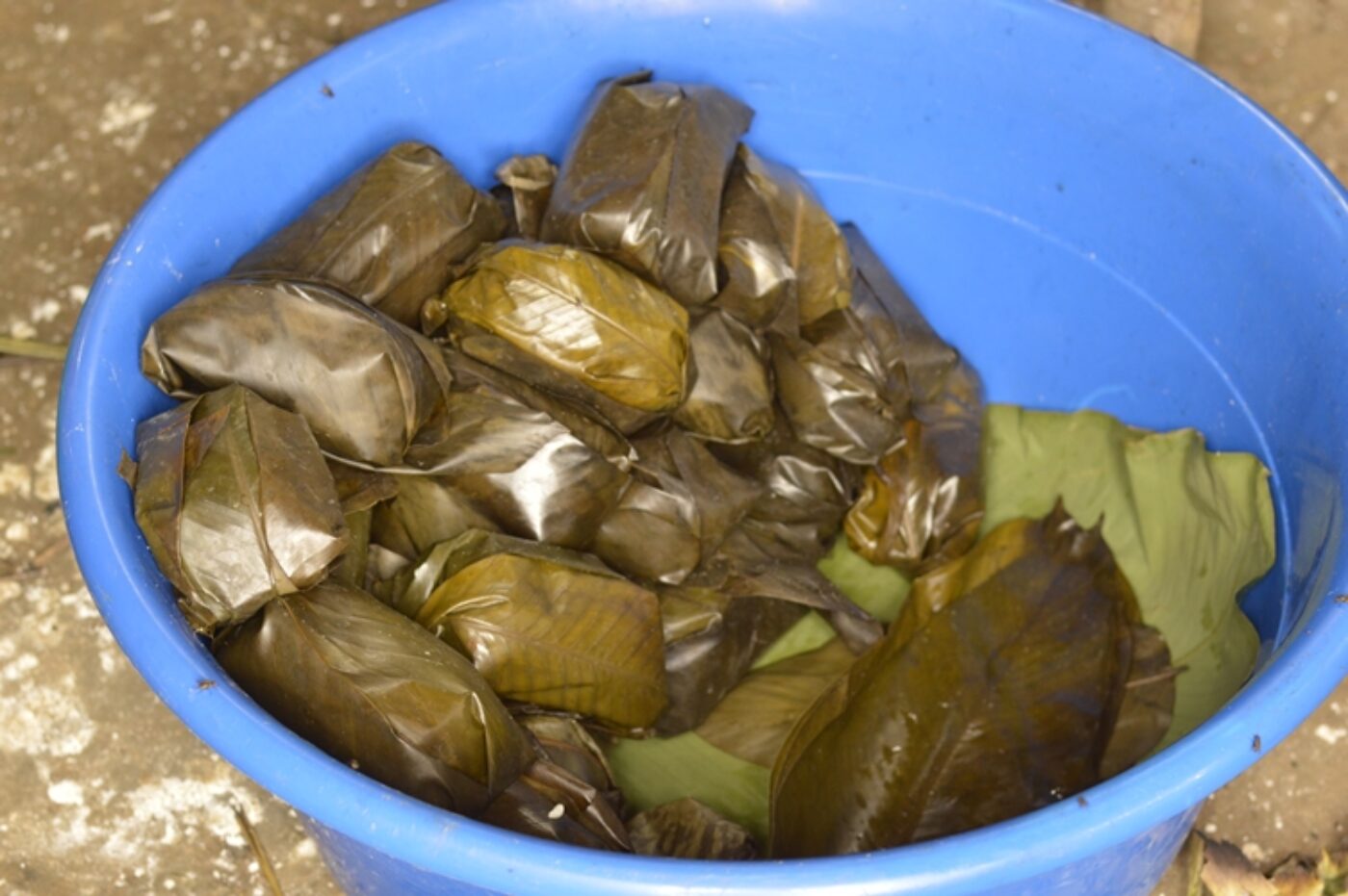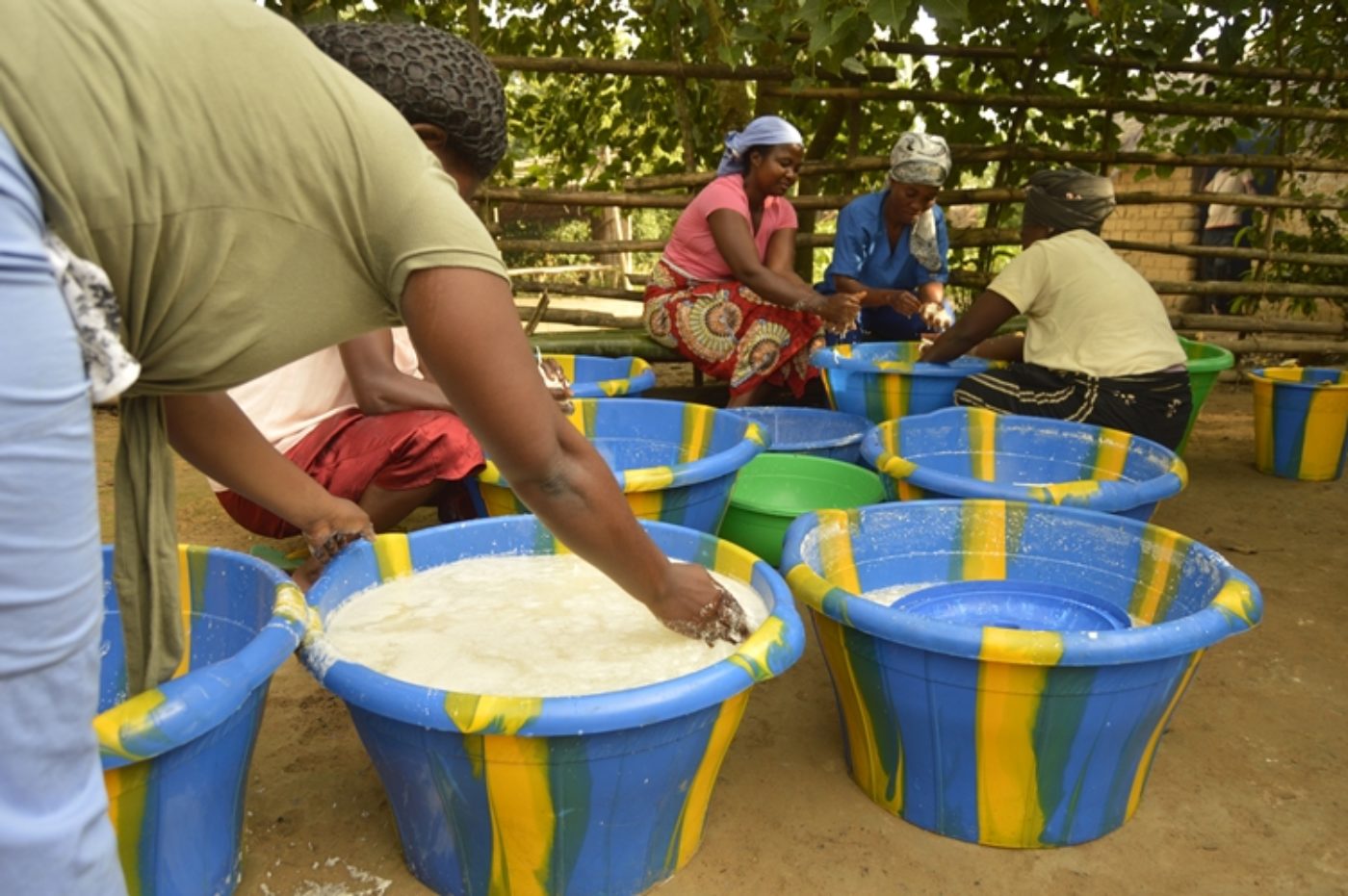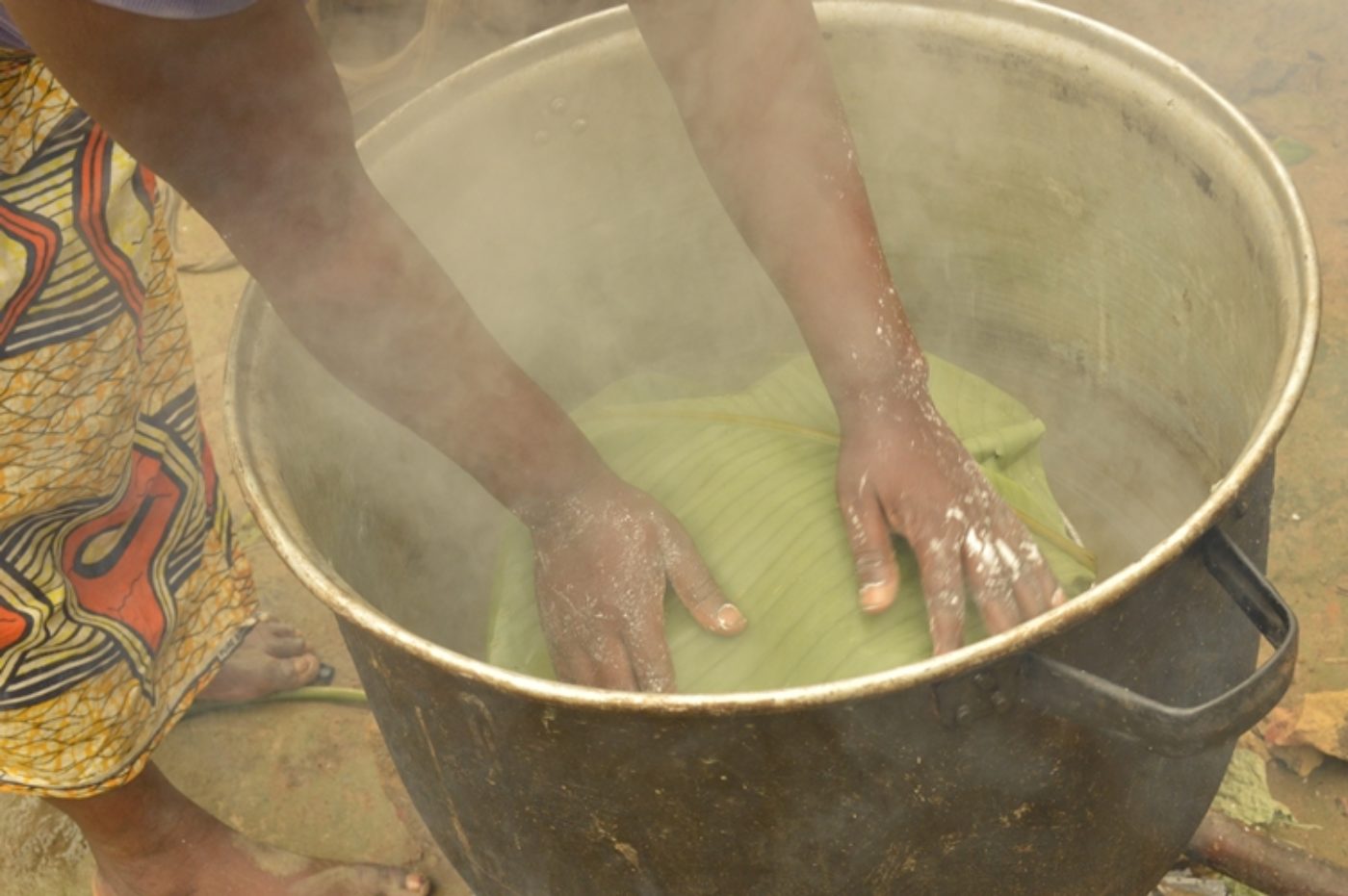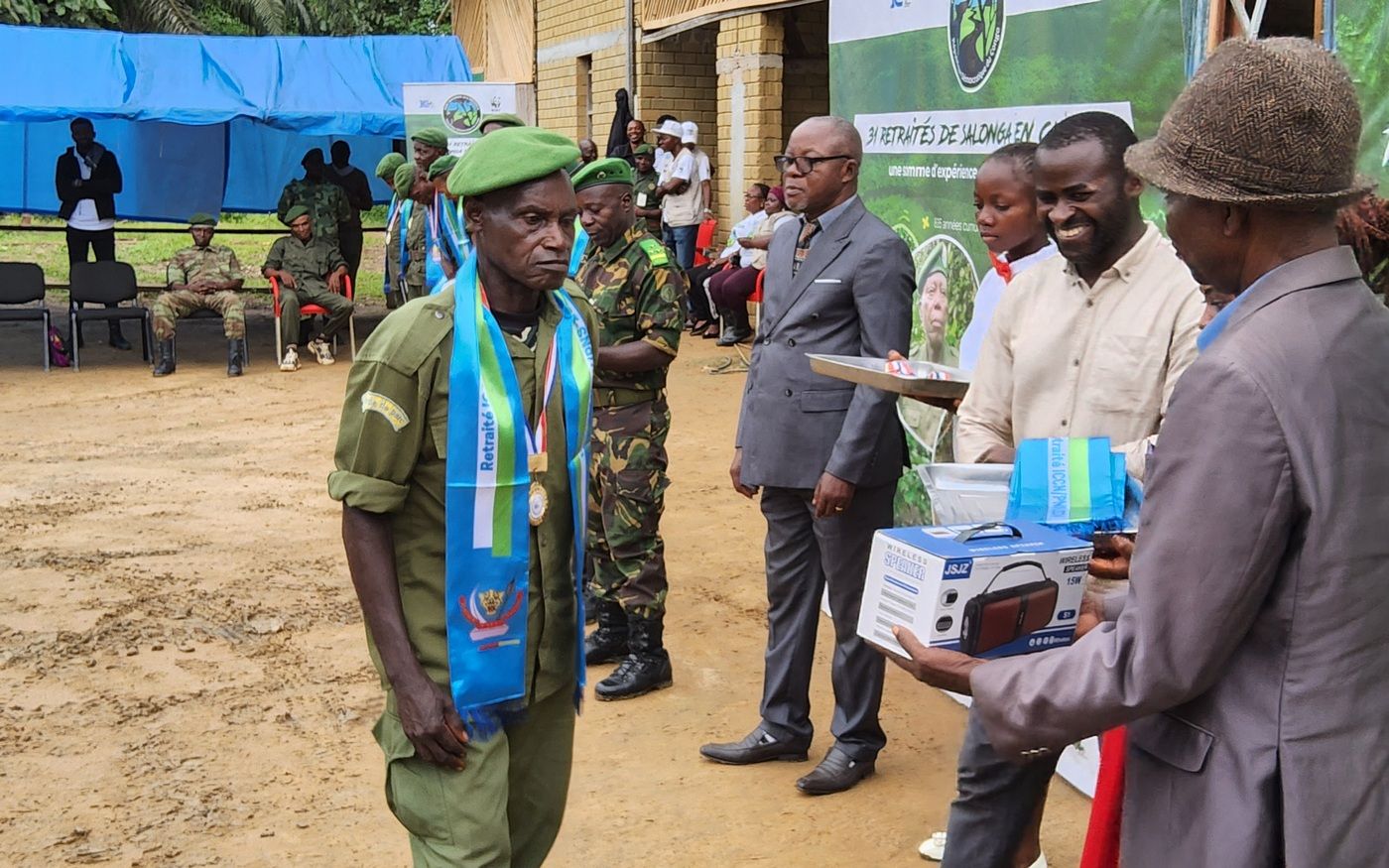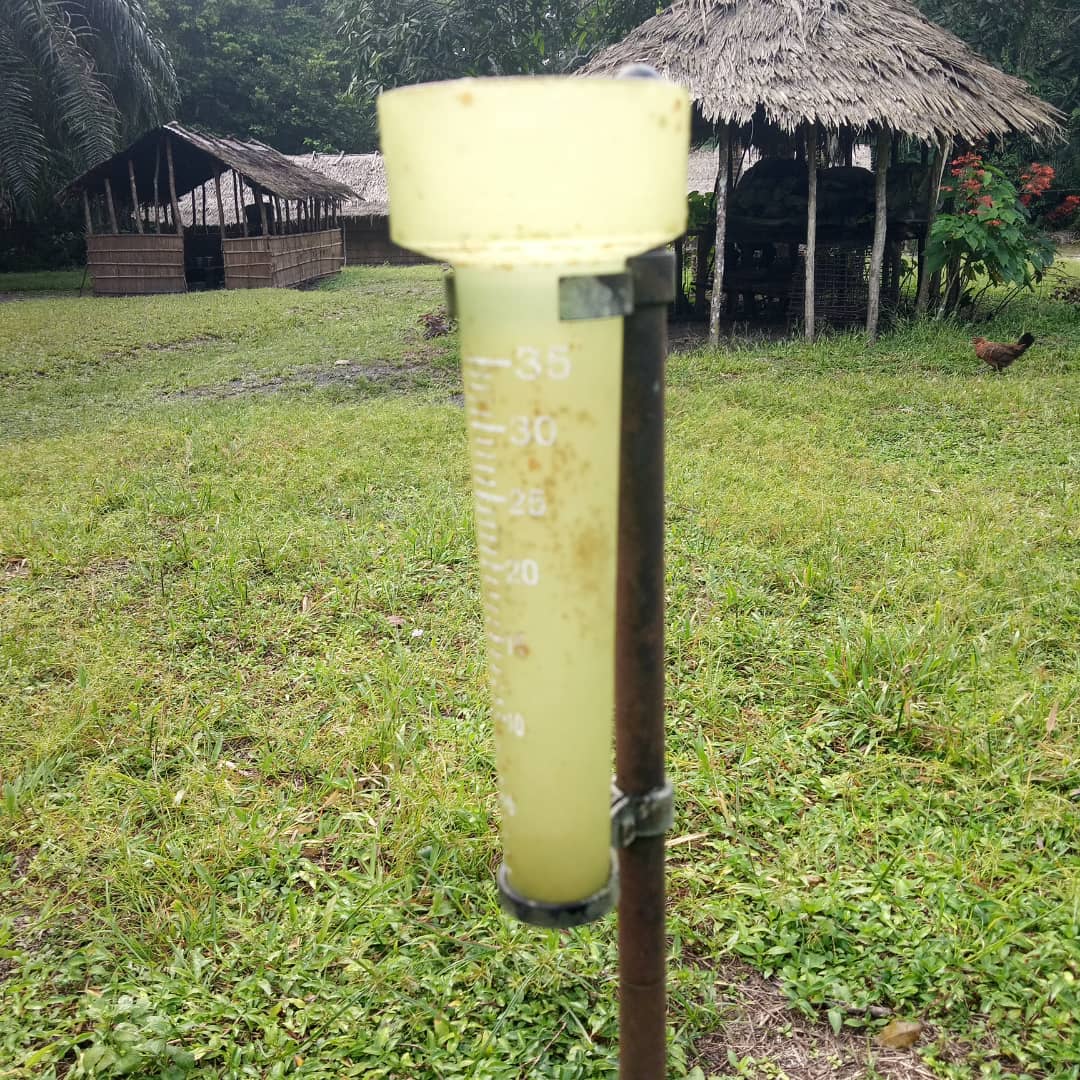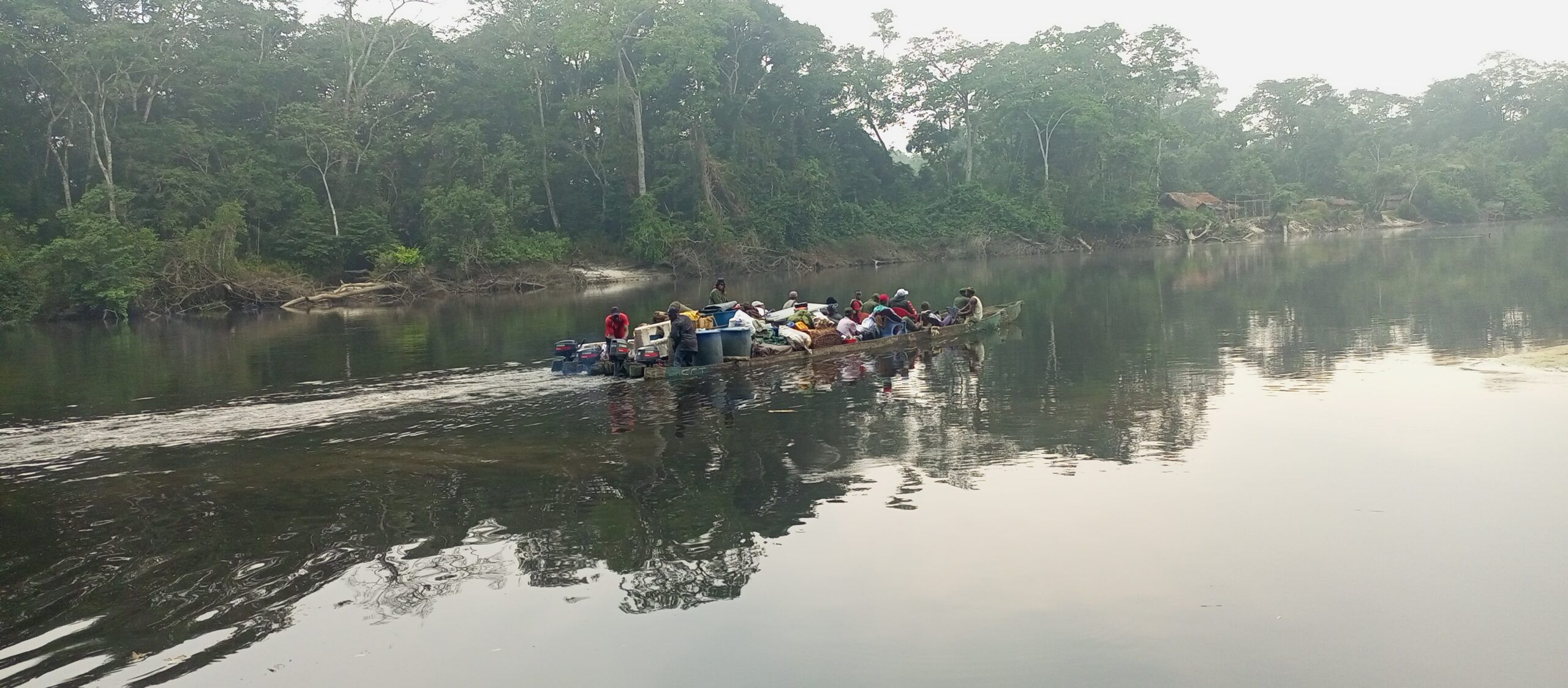Everyone in Monkoto is familiar with “chikwangue” as it is a staple food. But can you imagine how it relates to Salonga National Park?
To answer this question, let us follow the story of a women’s association on the verge of leaving a lasting footprint in Monkoto.
It all started in March 2017 when a group of women from Monkoto decided to get together to organize activities amongst women. Back then, no such association existed in the city and its surroundings. Initially, the group organized women’s football and “nzango” matches (a very popular game amongst women in the DRC where two opponents observe each other, jump simultaneously and try to guess which foot of the opponent touches the ground first). Afterwards, the women launched awareness campaigns about the Park to make people understand its importance and the reasons not to hunt there. They call their group the “Monkoto Women and Environment Club”.
Due to its limited resources, the group approached the Salonga park management team for financial support. The Park could not provide them with funding but assured them to assist with training instead.
Nicole Botalibo is the president of the Monkoto Women and Environment Club. She says: “in spite of our limited means, we are fighting since the creation of the association to make it work and maintain the enthusiasm of its members through activities and meetings.”
In 2019, the club gains a new impetus. Nicole Botalibo explains: “During the year 2019, we have learned about a highly dynamic women’s associations in Bikoro (a town located 140 km from Mbandaka, the nearest big city that can be reached within three days). According to our knowledge, their association had reached a point where it was able to grant micro-credits to its members. We wanted to find out why and how they were able to do this.”
In June, the Monkoto Women’s Club decided to send a group to Bikoro to find out more and if possible, to bring back this precious knowledge …
When they arrived, the six Monkoto envoys were literally amazed by the achievements of the local women’s association: small-scale livestock farming, a social centre where various apprenticeships are organized including computer training, ponds for fish farming, collaborative fields, and the existence of a permanent meeting room. The activity that caught their particular attention was the manufacturing and sale of a type of chikwangues different to those usually produced and consumed in Monkoto.
Chikwangue is a popular dish made out of cassava, a staple food for a large part of the DRC’s population. It can be prepared in various ways based on a common principle: the tubers that have been previously soaked for a few days in water – very often stream or pond water – are crushed, wrapped in leaves and boiled. Depending on the method of preparation, various flavours of chikwangues exist.
»If a family has enough money to support itself, it is less tempted to look to the Park«
In Bikoro, women use a more refined method of preparing chikwangue. The water in which the cassava tubers are soaked is changed regularly and greater care is taken in cleaning them. The dough is kneaded several times and for longer periods of time. This chikwangue, that looks and tastes better and lasts longer, is thus called ‘ameliorated chikwangue’.
The women of Monkoto asked a trainer to come and teach them how to prepare this very different chikwangue and eventually a woman from Bikoro agreed and came by boat to carry out trainings in Monkoto. Four months later, the group happyily also sent their juniors on a mission.
But where exactly is the link between the production of this different type of chikwangues and the conservation of Salonga National Park?
In fact, it is impossible to separate the protection of the Park from the needs of the local population. In an environment where economic opportunities are very limited, people often rely on the Park’s resources to meet their basic needs. To mitigate this reliance on the National Park, the Salonga park management introduces people to agricultural methods that have less negative impacts on the forest and also to income-generating activities that guide them away from the exploitation of the Park’s resources.
Therefore, the new method of making chikwangues comes at the right time for the women of the Club. “We want our members to be able to find a way to earn a dignified living”, explains Nicole Botalibo. “The new chikwangues were an immediate success as soon as they were sold on the market” she says. The chikwangue called “ntokwa” is the type traditionally consumed in Monkoto. The ntokwa can be kept for two days whereas the ameliorated chikwangue is edible for about ten days. According to Club members, the ameliorated chikwangue is much more popular with customers. “At the beginning, we started with a small quantity that we soon had to increase because of their success. Additionally, the chikwangues are prepared with cassava produced by us in a field owned by the Club. If a family has enough money to support itself, it is less tempted to look to the Park,” adds Nicole Botalibo.
The members of the Women and the Environment Club are very satisfied with this new activity, which brings them additional income. The preparation of the ameliorated chikwangue requires more time than the production of ntokwa, but the demand is growing. The Club receives assistance from the Park’s rural development officers in keeping the management accounts. Production and sales are carefully recorded, and the figures indicate that the activity is profitable. Of course, some adjustments will be necessary to optimize it and ensure its continuity.
Without seeming that way, these small initiatives, modest and discreet, also contribute to the conservation of Salonga National Park and guarantee the success of other efforts that are being made.
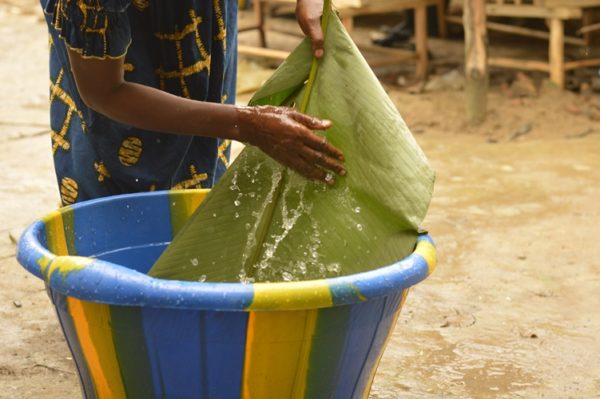
Cleaning of marantaceae leaves for packaging chikwangues
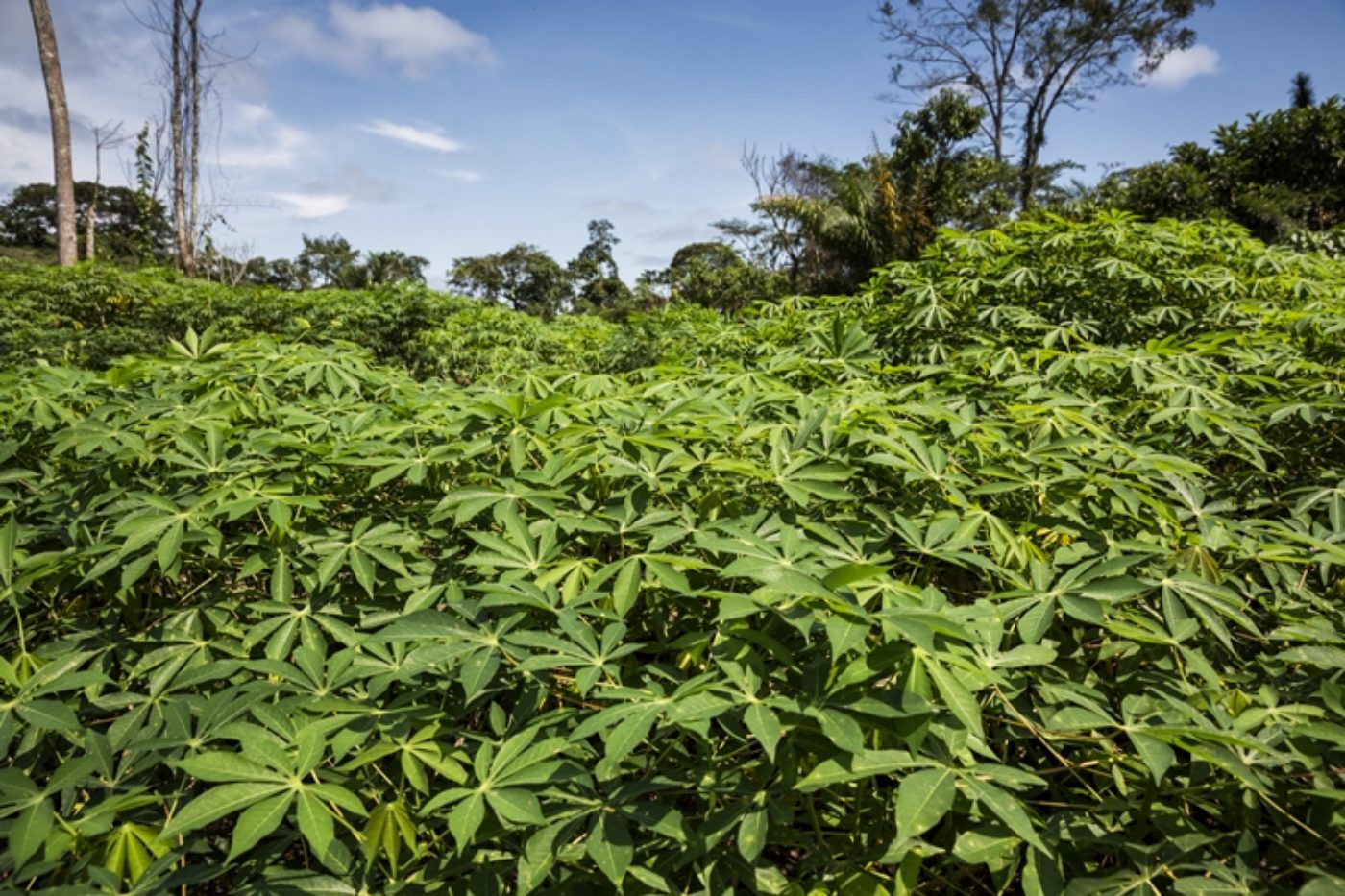
Manioc planted at a model farm in Monkoto
